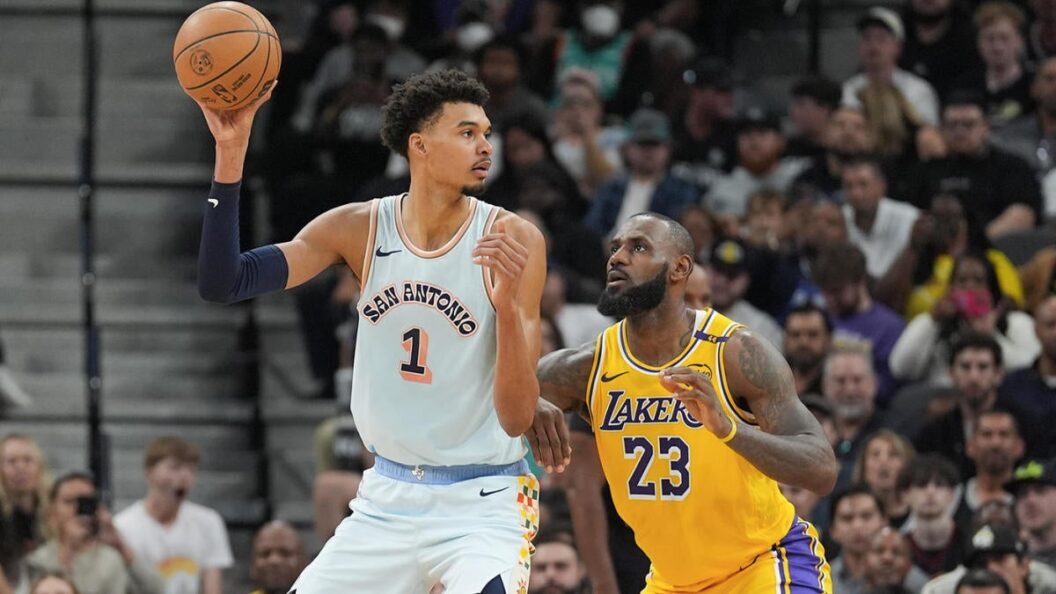NBA All-Star Game Faces Reckoning Amid Declining Interest
The NBA All-Star Game, once a celebrated highlight of the basketball season, is struggling to maintain its relevance as league officials explore new formats to revive interest. Despite efforts orchestrated by NBA Commissioner Adam Silver and the league, recent All-Star events have been criticized for lacking competitive spirit and appeal, drawing parallels with the fading luster of similar events in other sports.
Declining Interest and Competitive Spirit
Historically, the NBA All-Star Game has served as a crucial promotional platform for the league, offering fans thrilling matchups and unforgettable moments. However, over the years, the game has devolved into a series of high-scoring exhibitions rather than showcasing genuine competition. Recent All-Star games have ended with outlandish scores indicative of a lack of intensity, such as 211-186 and 184-175. The absence of tenacity is apparent, with not a single team held under 140 points since 2013.
Attempts at Reform
In response to dwindling audiences and the diminished competitive ethos, the NBA has implemented various changes in an attempt to revitalize the All-Star experience. Innovations such as the Elam ending—a format where the game ends when a team reaches a target score—have been introduced. The All-Star Game has also shifted to allow captains to draft teams without regard for conference affiliations. Despite these efforts, including high-profile performances like Blake Griffin’s iconic dunk over a vehicle, the excitement generated has not been enduring.
This decline is mirrored in other All-Star events, particularly the Slam Dunk Contest. Once a highlight featuring the league’s premier players, it has seen a drop in participation from star athletes. The contest’s recent editions have struggled to captivate audiences, with last year’s champion, Mac McClung, becoming a symbol of this fading excitement.
Changing Formats and Future Expectations
As the league gears up for this weekend’s All-Star festivities, a fresh approach is being introduced. The 2025 All-Star Game will feature a new tournament-style format where 24 All-Stars split into three teams, accompanied by the winner of the Rising Stars Challenge, will compete in a four-team mini tournament. Mike Bass, NBA spokesman, indicated that this change was made after discussions to enhance the weekend’s offerings. The emphasis will now be on a format designed to re-establish the competitive charm of the All-Star weekend.
"We weren’t able to land on a plan we thought would raise the bar off of last year’s special moment," Bass stated, highlighting the league’s acknowledgment of past shortcomings in event execution.
The shift towards a mini-tournament may reinvigorate interest by fostering competition, especially with young talents eager to make their mark, potentially renewing the spirit that characterized earlier All-Star encounters. The leagues’ legendary figures like LeBron James and Stephen Curry’s participation in Team Shaq could also serve as a lure for both fans and players.
A Cultural Shift
Critics note that the dwindling allure of the All-Star Game can be traced back to the reluctance of key players—most notably LeBron James—to participate in marquee events such as the Dunk Contest. This shift signifies a cultural change in the landscape of the NBA, moving away from the more competitive ethos embodied by past legends. As engagement wanes among both players and fans, the All-Star weekend must evolve.
With younger players like Victor Wembanyama and Shai Gilgeous-Alexander entering the league and displaying enthusiasm for competitive play, there exists a glimmer of hope that the spirit of past All-Star weekends can be revived.
Significance of the Ongoing Evolution
The NBA All-Star Game is at a pivotal juncture. The upcoming tournament-style format represents a bold attempt to reclaim its status as a premier sporting event. While the outcomes of these adjustments remain uncertain, what is clear is the NBA’s commitment to adapt and innovate in response to changing spectator interests.
As discussions about the effectiveness of the new format unfold, it serves as a reminder of the enduring influence of sports stars and their role in shaping the narrative surrounding collaborative events. Whether the fresh approach can reclaim the All-Star Game’s long-lost significance will remain a focal point for fans and analysts alike as the league navigates through this pivotal transformation.









